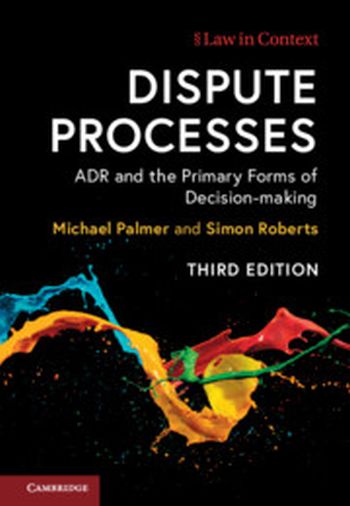
This wide-ranging study considers the primary forms of decision-making – negotiation, mediation, umpiring, as well as the processes of avoidance and violence – in the context of rapidly changing discourses and practices of civil justice across a range of jurisdictions. Many contemporary discussions in this field–and associated projects of institutional design–are taking place under the broad but imprecise label of Alternative Dispute Resolution (ADR). The book brings together and analyses a wide range of materials dealing with dispute processes, and the current debates on and developments in civil justice. With the help of analysis of materials beyond those ordinarily found in the ADR literature, it provides a comprehensive and comparative perspective on modes of handling civil disputes.
The new edition is thoroughly revised and is extended to include new chapters on avoidance and self-help, the ombuds, Online Dispute Resolution and pressures of institutionalisation.